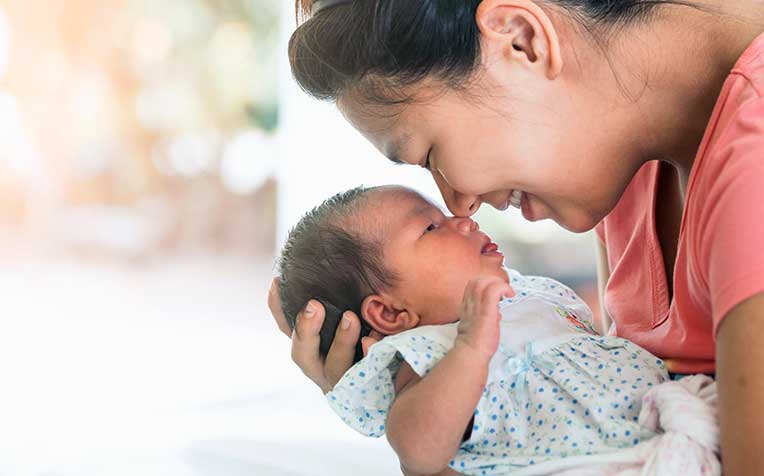1. Repeat oral glucose tolerance test (OGTT) is needed for all women with gestational diabetes mellitus, about 6-12 weeks after delivery.
2. Women with previous gestational diabetes have higher risk of future diabetes and need annual screening.
3. Reduce diabetes risk through healthy diet, regular exercise, and maintaining proper weight with 7% reduction goal.

It is still recommended for women wiho have recovered from GDM to go for diabetes screening every year.
After you deliver your baby, your insulin requirement decreases significantly with rapid improvement of blood glucose levels.
Most patients who require tablets or insulin injections during pregnancy are able to stop their medications. However, some women may have persistent diabetes after pregnancy. Therefore, a repeat oral glucose tolerance test (OGTT) is needed for all women with gestational diabetes mellitus, about 6-12 weeks after delivery. This is to ensure that the gestational diabetes mellitus (GDM) has resolved.
If the OGTT is still abnormal at this time, you will either be referred to a doctor who specialises in diabetes or to the polyclinic for follow-up, depending on the severity of the results.
Why is it important to attend your follow-up session after delivery?
If diabetes is not detected early or well-controlled, it can lead to serious and permanent complications of the kidneys, eyes, blood vessels and nerves, and may lead to a heart attack or stroke later in life. Following up with your doctor after delivery can help in early detection of diabetes. Risks of future complicated pregnancy can be reduced with timely intervention and treatment.
Are you at risk of gestational diabetes mellitus or diabetes in future?
Although most women with gestational diabetes mellitus recover after the pregnancy, these women still have:
- A higher chance of having gestational diabetes mellitus in subsequent pregnancies
- 6-7 times higher chance of developing diabetes in future
Therefore, even if your repeat OGTT is normal after delivery, you are still encouraged to go for diabetes screening every year.
Tips to lower your risk of diabetes after pregnancy
Sensible eating and regular exercise, both of which contribute to reducing body weight and therefore body mass index (BMI), can help reduce the risk of diabetes in future by about 50%.

A high BMI is associated with a higher risk of developing diabetes. In general, weight loss should be slow, steady and sustained. The recommended weight loss is 0.5 to 1 kg per week. A reduction of 7% of body weight in 6 months is a safe and effective weight loss goal.
1. Dietary recommendations
My Healthy Plate (Health Promotion Board, Singapore) can be used to guide eating patterns.

- Choose wholegrain carbohydrates e.g. brown rice, wholemeal bread, oats, chapatti, wholewheat pasta/ noodles, high-fibre biscuits and cereals. These are also rich in vitamins and important trace elements and contain fibre which slows digestion.
- Fill half the plate with green vegetables.
- Aim for 2 servings of vegetables and 2 servings of fruit. If you are lactating, aim for 3 servings of vegetables and 2 servings of fruit.
- Use healthier oils, e.g. canola, olive and peanut, which contain monosaturated fats.
- Choose fish and beans instead of red and processed meats as sources of protein. Oily fishes contain omega-3 fatty acids which are good for the brain and heart. Aim for 2 portions of fish per week.
- Water is best. Unsweetened tea and coffee can be taken in moderation. If you have canned drinks, go for diet or ‘zero’ options.
- Reduce consumption of fried food and cakes as these contain trans fats, which are harmful for cardiovascular health.
- Limit the amount of processed food.
- Reduce intake of sweetened drinks and food such as sweets, desserts and cakes.
2. Exercise recommendations
Regular exercise helps to burn calories, thus helping you to achieve weight loss. Aim for half an hour of moderate-intensity physical activity 5 days a week, if there are no medical restrictions. If you are used to a sedentary lifestyle, build your exercise level up slowly.
Note: Your normal moving about over the course of a day does not count as exercise!
Suggestions:
- Take a 20-minute walk after dinner.
- Use the stairs instead of the lift.
- Get off the bus one stop earlier and walk the rest of the way to your destination.
- Go swimming.
In addition to lifestyle measures, it is recommended that you:
- Seek medical attention early for subsequent pregnancies.
- Have annual blood glucose tests as surveillance for diabetes.
Ref: O17













 Get it on Google Play
Get it on Google Play